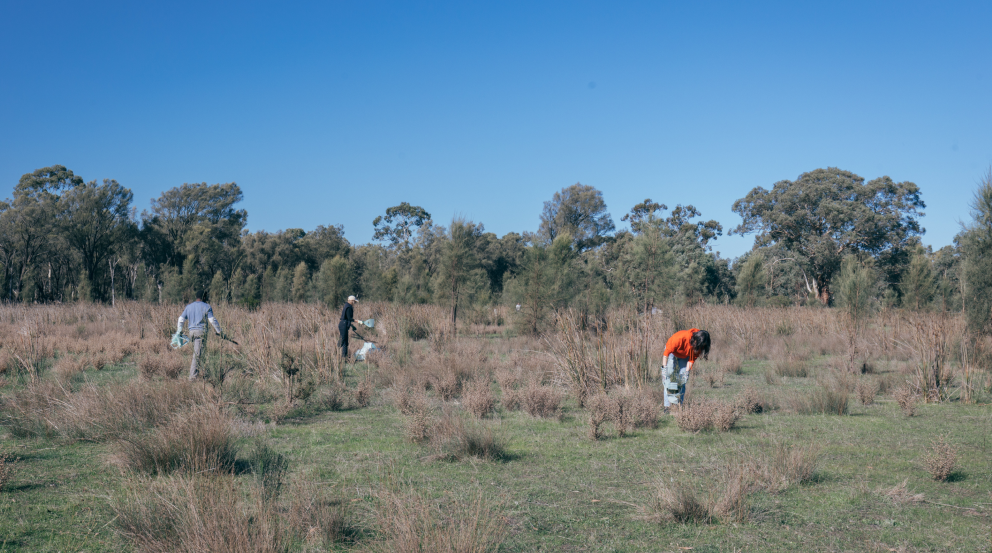Even if every single Australian used a KeepCup for their coffees, a canvas bag for their groceries, and took Tupperware to their favourite takeaway joints, we’d still have a lot of work to do on the sustainability front.
For example, let’s think about cling film or plastic stretch wrap for a sec. Sure, you might be using beeswax wraps at home, but how much cling film do you think the hospitality industry uses on any given day? How much wrap do you think wineries use to encase their pallets of wine? What about even non-hospitality businesses, who ship billions of pallets around the world each year?
The answer, of course, is a lot. A single winery, in fact, can use up to 3,500,000 metres of plastic wrap in a single year. So while using reusable alternatives at home is great – industrial waste is still a huge problem, and we need bigger and more scalable solutions if we’re really going to have an impact. Bank Australia customer Jordy Kay has one of those solutions.
Jordy is the founder and CEO of Great Wrap, an Australian company that’s behind the world’s first compostable stretch wrap. Having started his career in the natural wine business, Jordy simply “couldn’t unsee” the staggering amount of plastic wrap the industry was churning through on a daily basis.
“The most effective way that we can solve plastic waste and plastic pollution is through working with businesses, big or small, to begin changing their impact,” says Jordy. “A lot of businesses might claim to be ‘green’, but when you look behind the curtains, there are often huge problems. So I think going B2B, like we are, is a great starting point.”
The Great Wrap product is 100% compostable, leaves no trace of residue or microplastics, and breaks down in 180 days once it’s put on the compost pile. The company’s goal is to remove one million tonnes of plastic from the environment within a year.
In spite of there being a long battle for tangible and lasting sustainability ahead, Jordy has faith in his fellow human beings. “I genuinely believe people, by and large, are good, and I think that while companies are about maximising profit, they’re also increasingly about minimising their impact,” he says. “Sure, some of that is coming from a political angle – Australia has 2025 packaging targets that says 100% of our packaging needs to be reusable, recyclable or compostable by 2025 of earlier – but consumers are pushing for it too. Even companies like Coca Cola are genuinely trying to limit their waste.”
A passionate environmentalist, Jordy self-funded the research and creation of the Great Wrap product, which has already been picked up clients both large and small, in Australia and beyond. “It wasn’t just small businesses getting on board,” explains Jordy, “we’ve been contacted by some huge, huge companies – beauty companies, skincare, soft drink, wine, meat and dairy. There isn’t one single industry that’s reaching out to us – it’s really spread out, which is incredible.”
For each box of Great Wrap sold, Jordy estimates that they prevent 1.2 kilometres of plastic wrap entering landfill. A fact that, as far as he’s concerned, makes the decision to switch to Great Wrap an absolute “no-brainer”.








